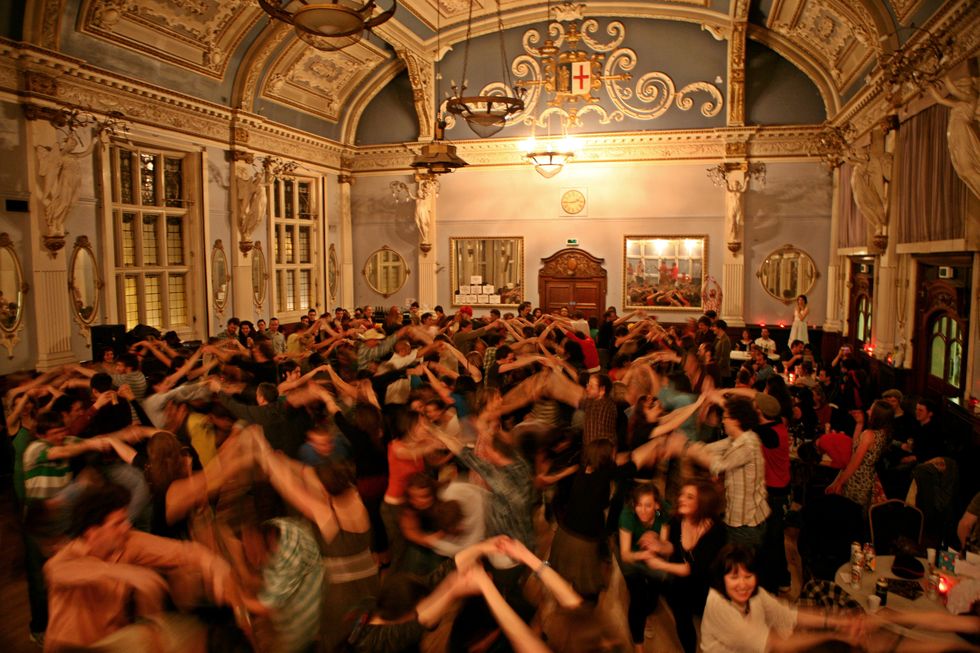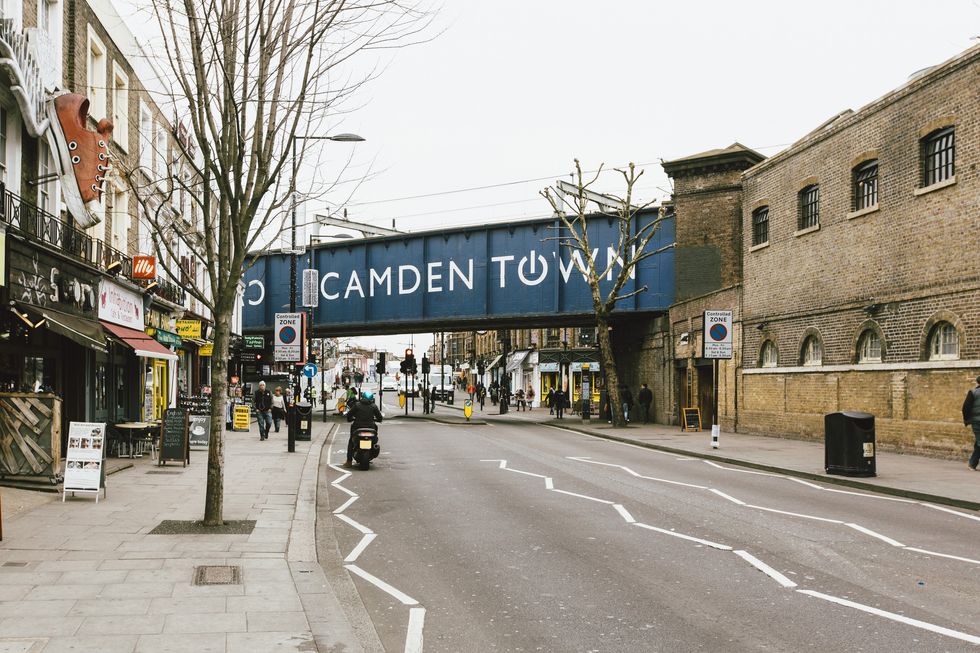Connie Shaw makes clear her views on free speech after being cancelled for transgender views
GB News
Traditional folk dances often feature defined male and female roles, with callers directing complex dance patterns for large crowds
Don't Miss
Most Read
Trending on GB News
The English Folk Dance and Song Society (EFDSS) has called for the removal of gendered terms like "ladies and gentlemen" from folk dancing to avoid offending minority genders.
The charity, which receives Arts Council backing, has issued new guidance urging teachers and dance hosts to adopt "gender-free language" in traditional barn and ceilidh dances.
The move aims to prevent anyone being "misgendered on the dance floor" during events where callers traditionally guide dancers using terms such as "men and women" or "boys and girls".
The society suggests identifying dancers by their clothing or position in the room rather than assuming their gender or pronouns.

The English Folk Dance and Song Society (EFDSS) has called for the removal of gendered terms like 'ladies and gentlemen'
Getty
Traditional folk dances often feature defined male and female roles, with callers directing complex dance patterns for large crowds.
The EFDSS guidance has also flagged concerns over commonly used terms like "partner", suggesting these could make solo attendees feel excluded.
"Saying couples or partner/partners in some contexts can make single people who are attending alone feel excluded, or could make people feel uncomfortable in regard to how their relationship status is being perceived," the guidance states.
The organisation recommends callers consider introducing themselves with their own pronouns when leading dances.
MORE LIKE THIS:

Traditional folk dances often feature defined male and female roles, with callers directing complex dance patterns for large crowds
Flickr
The new guidelines also address consent in folk dancing, stipulating that callers and organisers should "model good consent" by not pressuring people to join dances.
Dancers are advised that if they ask someone to dance, they "should be prepared to accept no as an answer without expecting an explanation."
The guidance also recommends participants "avoid touching other dancers unnecessarily" during events.
These measures are part of EFDSS's broader aim to "provide a framework for building safer spaces within the social folk dance world."
The guidelines additionally include advice on making events more accessible for disabled people.

The English Folk Dance and Song Society founded in 1932, is based in Camden
GETTYThe EFDSS, founded in 1932, is based in Camden and maintains the Vaughan Williams Memorial Library, England's main repository of folk songs.
Following Black Lives Matter protests in 2020, the organisation committed to fostering "a new, more diverse folk scene suited to our multicultural, 21st-century landscape."
The society has also distanced itself from its founder, Cecil Sharp, acknowledging that the Edwardian folk song collector "held some offensive opinions, and his writings identify him to have expressed racist views."
The organisation continues to play a leading role in both preserving and promoting folk music and dance in England.








